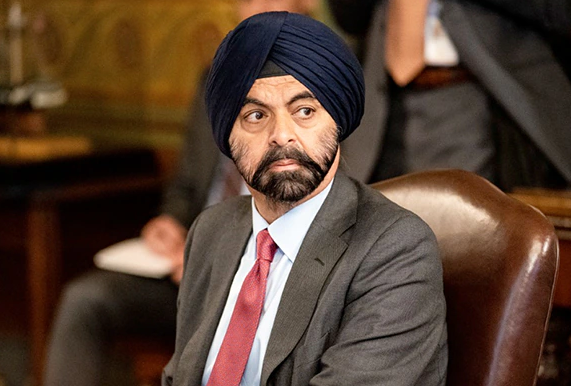World Bank President Ajay Banga, in an interview with Reuters, shared his plans to prioritize combating climate change and addressing global crises by utilizing the bank’s resources more effectively. While he aims to push the bank’s balance sheet to its limits, he emphasized the importance of maintaining its prestigious ‘AAA’ credit rating, which enables the bank to borrow and lend at low interest rates.
Banga acknowledged that while these efforts would result in increased lending, the impact might be in the tens of billions of dollars annually, rather than the hundreds of billions some had hoped for. He emphasized the need for a cautious and sensible approach, while still striving to do as much as possible within the bank’s means.
His remarks bring a sense of realism to the ambitious goals of leveraging multilateral development banks to finance the transition to clean energy, an undertaking estimated to require trillions of dollars annually. In 2022, the World Bank Group committed a total of $104 billion in lending.
Banga, being entrusted with the task of mobilizing private capital for developing countries, is exploring various options. These include considering “hybrid capital” or subordinated debt, which would provide greater leverage due to its equity-like treatment by ratings agencies. However, he dismissed the notion of using International Monetary Fund Special Drawing Rights reserves, as it could create mismatches between long-term project loans and liquid central bank assets.
The idea of utilizing “callable capital,” funds pledged but not paid-in by wealthier countries to support World Bank losses, is another option under consideration. However, implementing this strategy would require time and potential changes to laws governing World Bank shareholdings in some countries. Banga aims to provide further details on these possibilities by the time of the bank’s annual meeting in October.
The international community, including finance ministers and non-profit organizations, anticipates Banga’s innovative approaches to attract significant private investments for developing nations. These investments would not only help reduce carbon emissions but also support job creation and enhance the resilience of these economies.
Overall, Banga’s pragmatic outlook sets a realistic tone amid high expectations, highlighting the need for careful consideration while pursuing ambitious goals in combating global challenges and promoting sustainable development.
Disclaimer: While we strive to ensure the accuracy and reliability of the information provided on this website, we do not guarantee its completeness, accuracy, or reliability. The views and opinions expressed in the articles are those of the authors and do not necessarily reflect the official policy or position of www.newsproject.in. Readers are encouraged to verify the information independently before acting on it.

